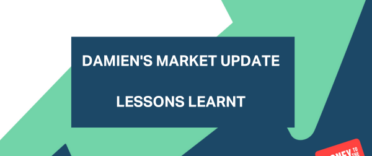If you are going to invest in shares, particularly in today's volatile market, then it pays to listen to any advice the experts have to give. Kevin Murphy the new fund manager of the Schroder Income Fund, and the former co-manager of the Schroder Recovery fund, tells The Telegraph the eight lessons that equity investors should learn.
1- Patience is a virtue
Market sentiment can create exceptional opportunities for investors with patience. At times of market ''panic'', share prices fluctuate far more than underlying fundamentals of many businesses warrant. This creates great opportunities.
2- Ignore economists
While fund managers are frequently asked their economic views, macro-forecasting is notoriously difficult. The process relies on predicting a range of interrelated variables.
The number of economists proven wrong during this crisis highlights the scale of the challenge. There is little point forecasting economic outlook or using macro-forecasts to determine company values.
3 - Cheap is best
If macro trends are not the best indicator of stock market returns, valuation remains the surest guide to future investment performance and data illustrates that buying securities on low valuations gives the best opportunity for future returns.
Buying shares at around 5-10 times earnings, would usually see annualised returns for the next 10 years of more than 10pc. In contrast, buying shares on 25-30 times would see extremely disappointing future returns.
4 - Good companies are not always a ''buy''
Buying a ''good'' company at the wrong price can seriously affect overall returns.
5 - It is the average that counts
Peaks and troughs are part of operating and share price performance, but there is a tendency to revert to averages. Companies with high profits are unlikely to generate that growth forever and companies with low profits are unlikely to be stuck in long-term ruts.
When valuing companies, strip out peaks and troughs and look at average long-term earnings potential – the intrinsic value or ''normalised'' profit potential.
6 - Dividend history is key
As investors search hard for yield, it is important to note companies' long-term ability to pay dividends, rather than being swayed by short-term distributions.
Some utility companies need to increase their debt every year in order to maintain their dividend at its current level.
7 - Size doesn't matter
Tracking error (how different a fund looks from its benchmark index) is a widely used ''risk'' measure, but it is inappropriate to assess portfolios on this alone. Not owning a large FTSE All-Share results in a higher tracking error and, theoretically, a higher 'risk'.
However, it is preferable to assess investments in terms of absolute risk, looking at valuation risk (the risk of overpaying), earnings risk (the risk earnings decline over time) and financial risk (the risk of insolvency).
If an investment's potential returns significantly outweigh the balance of risks, it should be viewed as an attractive long-term opportunity, regardless of index size.
8 - Don't follow the herd
Willingness to go against the crowd (and for your fund to look different to the index) is fundamental for generating superior long-term returns.
The original full article can be found here.


















